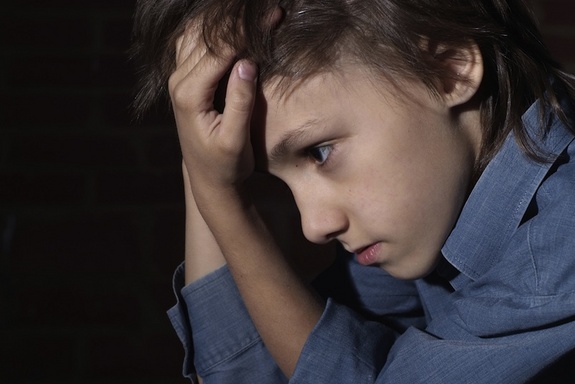High Doses of Antidepressants Linked to Suicide Behavior in Younger Patients

Children and young adults who start taking antidepressants at high doses are more likely to think about or attempt suicide than those who start at the doses of antidepressants that are typically prescribed, according to a new study.
Researchers found that young people between ages 10 and 24 who started antidepressant therapy at high doses were twice as likely to attempt or think about suicide over the first 90 days of treatment compared to those who started taking antidepressants at the doses recommended by doctors' guidelines.
This translates into about one additional event of suicidal behavior for every 150 patients who take high doses of antidepressants, the researchers said, writing today (April 28) in the journal JAMA Internal Medicine.
"There is no evidence that starting at a higher dose is beneficial," said Dr. David Brent, of the University of Pittsburgh, who was not involved in the research, but wrote a commentary about the study also published in the journal. [Aspirin to Zoloft: How 4 Common Medicines Work]
About 18 percent of the 10- to 24-year-olds in the study were prescribed a higher dose, and although the study doesn't make clear why some got a higher dose, there may be differences between the young people in this group and those given the normal doses, Brent noted in his commentary. For example, those given higher doses may not have received average doses of antidepressants in the past and failed to respond.
Among young people between ages 10 to 24, suicide is the third leading cause of death, the CDC reported in January 2014. And there are many more suicide attempts than suicides that are actually completed. Each year, about 157,000 young people between ages 10 and 24 receive medical care for injuries resulting from suicidal behavior at ERs across the United States.
In the study, the researchers examined data gathered from 1998 through 2010 on about 163,000 people with depression, ages 10 to 64. Some people in the study started taking average doses of antidepressants, while others started at higher doses.
Sign up for the Live Science daily newsletter now
Get the world’s most fascinating discoveries delivered straight to your inbox.
Although the researchers found the initial higher dosage affected the 10-24 age group, they didn't find the same result in people who were older than 24.
The researchers said they are not sure why the antidepressants seemed to have a pronounced effect on suicidal behavior in young people. However, it could be that those individuals' young age makes them more susceptible to the negative effects of antidepressants.
The study did not address the effects of a gradual increase of antidepressants on patients, Brent said. He added that "there are promising studies that suggest [that] in certain subgroups, dose escalation can be of benefit."
But he also said that if he "had a patient who previously had responded to a higher dose, and they discontinued it and relapsed, it would be reasonable to move quickly to the original dose."
As for the strength of antidepressant doses, "people should follow the current guidelines of starting at 10 mg for a week, going up to 20 mg for a week and only increasing again if they did not respond," Brent told Live Science.
Follow Agata Blaszczak-Boxe on Twitter . Follow Live Science @livescience, Facebook & Google+. Original article on Live Science.
